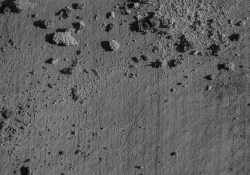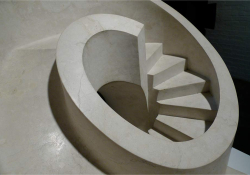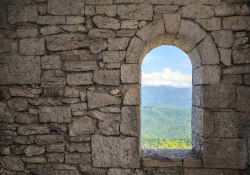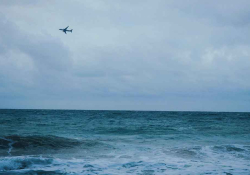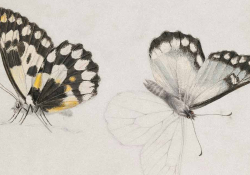Tales of Silence: A Poem in Three Languages

የጸጥታ ወግ
በጸጥታ መኃል…. አርምሞ ለሰማ ጸጥታ ወግ አለው…. ሚኒሊክ እንዳለው
አሁን እኔና አንተ… አሁን አንተና እኔ ካወራው ሁላ የትኛው ተወዶ… የትኛው ተጠላ ?፤
ይሄው ከላይ መንደር
ሰው ከቀየው ጋራ… እንዳይነጋገር ወገኛው ወዳጄ…. ለራሱም ያልበጄ ወግ ለሌለው ሃሳብ …ወግ እያሳደደ የመንደሬውን ሃቅ …ቁርሾ እያደረገ
ኮሽ ባለ ቁጥር …. ስንት ማቲ አስፈጄ ? ?
ኽረ እንዴት ነው ጎበዝ …ምንድነው ባገሬው እየሆነ ያለው… ይሄኛው ከተማ…መኃል ሀገር ያለው
የሚለው እያለው… ለምን ነው ዝም ያለው ?
እያልኩ ደጋግሜ…. እሞገተዋልሁ ታሪክ ላጣ ቀየ… ታሪክ እመዛለሁ
እንደዚህ እላለሁ……በጸጥታ መሃል… አርምሞ ለሰማ ጸጥታ ወግ አለው… ሚኒሊክ እንዳለው፤
እንግዲህ ሃሳቤ… በሃሳብ ተቀጣ
ስንት ንጉስ ይንገስ…ስንት ንጉስ ይምጣ
ጸጥ ያለው መንደሬ ….ተንጦ ተንጦ ቅቤ እንዲያወጣ ?፤ አሁንም እዚያው ነኝ… ያልተተነተነ ብርቱ ጥያቄ አለኝ ጸጥ እረጭ እያለ …ቀየው ያወጋኛል
በዝምታው መሃል… ታሪክ ይነግረኛል ታሪክ እየበላ ….ታሪኬን ነጥቆኛል፤
ሳንጃው ጎረቤቴም እንዲህ ያወጋገኛል “የድሮ ዝምታ የድሮ ዝምታ
ለንጉስ መብረቅ ነው ለአምላክ ሹክሹክታ” እያለ እያስባለ…ተስፋ ያስቆርጠኛል ኑሮየን በነበር … በዜሮ እያጣፋ….
ትረካውን ነግሮ ….ታሪክ የማይሰራ ትውልድ ያደርገኛል፤ እኔ ግን እዚያው ነኝ …እኔ ግን እዚያው ነኝ
ከከተማው መሃል …ከተማ ጠፍቶብኝ ሰርክ የምፋለመው ብርቱ ጥያቄ አለኝ፤ “ኽረ አንተ ከተማ …ኽረ አንተ ከተማ
ጸጥ ካለው መንደርህ… ከቅኔው ገጽህ ላይ…. ወርቁን እንዲያወጣ
ስንት ዘመን እንፍጂ…. ስንት ሀሳብ ይቀጣ ጸጥታ ሚያዳምጥ…ንጉስ እስኪመጣ ? ? ?”
Tales of Silence
For he who listens silently to silence, amidst serenity so tranquil,
amidst those silenced, and silence spoken through tales of how Menelik aptly said: silence has its
own say!
From what you and I talked about, so far, so long, which one is left to love, which one is left to hate?
From the status cue above, from that forbore talking to the villagers from above,
and to the person made of talk, with no benefit even for himself,
who by a void thought to try to shadow tales spying on the very truth of the people.
Woe to him, who by a slight sound became a coward, inflicting hidden injury,
letting thousands get killed.
Countrymen! What is this mishap, this catastrophe that rained on our people? Is a stronger silence
needed to be heard?
Why is the city at the centre of silence while it has some truth to tell?
Should I challenge what reigns with new telling stories telling silence on behalf of the people who
lost
their voice to history?
And I say vehemently,
as Menelik aptly said: silence
has its own say! Still my thoughts punished by other thoughts, thinking how many kings shall we
expect,
how many tales shall sound unheard silence anew?
Now my country whips a cream like butter extracted from shaken
milk. Still, now, here I am
with a stringent question
ever unanalyzed ever unanswered.
Though thought so silent, so through thought so unquiet, so the neighbourhood tells me its tale in
tranquility, so narrating
its history, dissolving its history and stealing mine. Now
my old neighbor’s old tale tells like a dagger: ‘The mere ancient silence,
a bolt from the blue for the king, a whisper to God.’
So said the old neighbor, so made us in despair, so nullifies my life, so by a zero cancelled.
So he, by telling his tale of past
silence was loud enough to be heard. And this reduces me to a non-acting generation
that can’t make its own history its own history.
And yet, here I am, still here, still losing a city within a city. Still asking a question that I fight
still in each passing day:
‘O! Dear city, dear city,
In your silent village, you are within a “Wax – and – Gold” complexion.
And to distil the Gold, how many eras shall we exhaust?
How many thoughts shall we crush until we raise a sound king,
who can
listen to our silence.’
Translation from the Amharic
By Nebiy Mekonnen & Eric Ellingsen
Sagen, über die Stille
Dieses Gedicht. Dieses Gedicht handelt, ist
das Gegenteil und das Gleiche, wie Mihrets Gedicht: Inhalt und Veränderung werden vermischt.
Dieses Gedicht entsteht durch das, was es sagt, das es ist, wenn es fragt: Geliebte, Stadt,
was bist du so still?
Dieses Gedicht spricht, von Menelik, dem König. Von Gold und Ideen, Butter, Stolz und Milch.
Dieses Gedicht lässt Verstimmtes, Geschichte in sich, lässt die Stille nicht zu, nimmt sie auf.
Dieses Gedicht ruft nach allen Bürgerinnen
und Bürgern einer Stadt, als seien sie einer oder eine. Dieses Gedicht ist selbst eine Stadt, eine Sage,
die nach Worten klagt, um für Verlorene,
auf Wahrheit zu bauen: mit Wegen, Häusern, Hühnern, Kühltruhen, Händen und dem sanften Mond,
mit Abendlicht und Zähnen, Zungen, Zäunen und Injera-Brot. Diese Stadt, sie brütet, hütet sich, fragt
nach den Stimmen: Wieso sind sie so still?
Dieses Gedicht ist voller Liebe.
Es beruht auf Klängen, Kehllauten, einem warmen Vokal, und sehr vielen I’s.
Dieses Gedicht ist Addis Abeba. Ist Ankara. Athen. Alabama. Jakata. Aber auch Wien. Es schämt sich
nicht, es trägt das Gold, von dem es spricht.
Dieses Gedicht handelt, wie Butter, Sahne und Milch,
vom richtigen Filtern und Schütteln: vom Frei Schütteln, Auf Schütteln Aus Schütteln Um Schütteln
Wach Schütteln Nach Schütteln, Vor Schütteln Voll Schütteln Voll –
Dieses Gedicht fragt nach Königen, wie nach großen Ideen. Es macht die Stimmen zum König. Macht
mächtig,
macht Macht. Es handelt vom Handeln, aus der Stille. Dieses Gedicht ist nicht still.
Translation from the English
By Rike Scheffler


